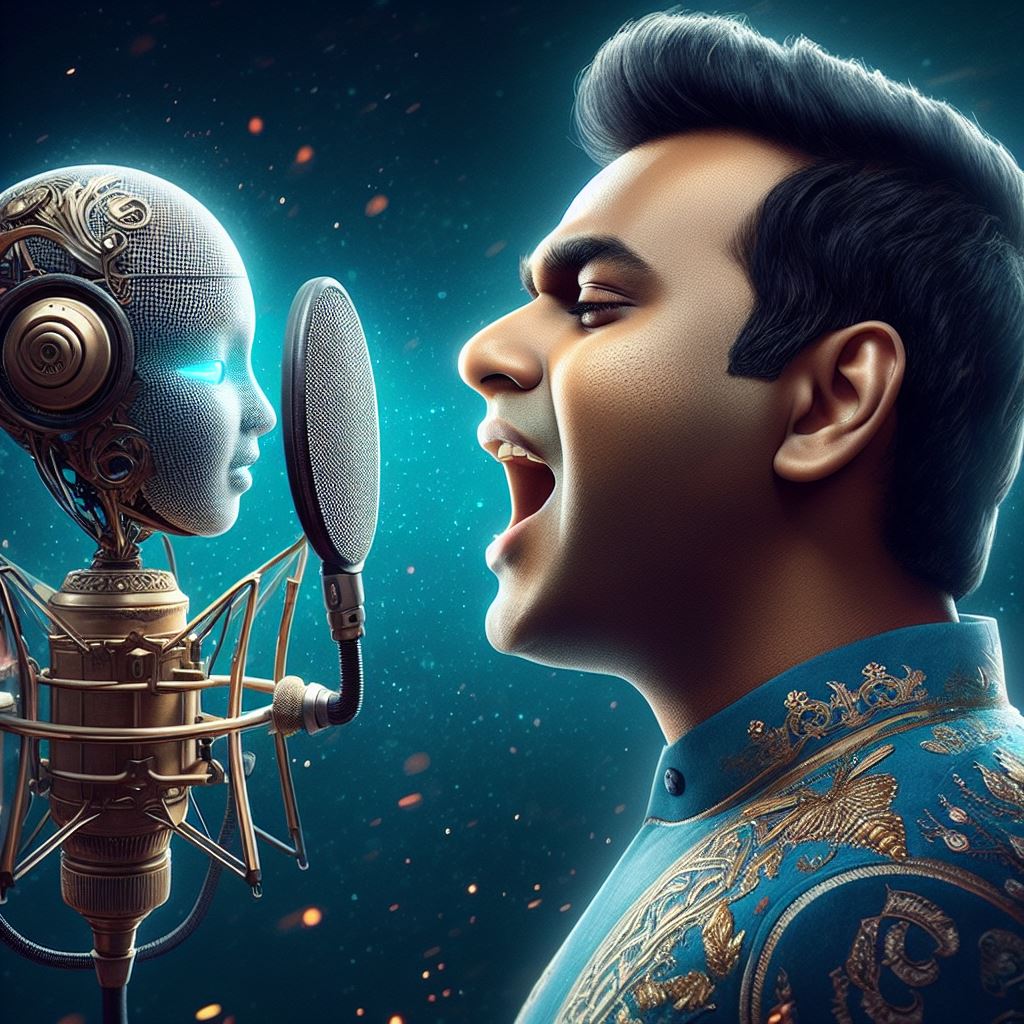In a surprising turn of events, AR Rahman, the celebrated composer renowned for his innovative contributions to the Indian music industry, has recently become the focal point of controversy. The source of the uproar lies in his decision to incorporate AI-generated voices of the late singers Bamba Bakya and Shahul Hameed in his latest composition, ‘Lal Salaam.’ Rahman contends that he sought and obtained permission from the families of the deceased artists before embarking on this unconventional musical journey. However, this assertion has not shielded him from the critical backlash emanating from both fans and industry experts alike.
AR Rahman, often lauded for pushing the boundaries of musical experimentation, has chosen to tread on ethically precarious ground with the introduction of AI-generated voices into ‘Lal Salaam.’ While his inclination towards embracing cutting-edge technologies is no secret, the use of artificial intelligence to replicate the voices of deceased artists has ignited a fierce debate about the authenticity and emotional resonance of such a creative choice.
At the heart of the controversy lies the profound emotional connection that fans forge with the voices of their favorite artists. The posthumous use of AI to recreate these voices introduces a complex dynamic, blurring the lines between human artistry and technological innovation. Detractors argue that this approach risks diluting the genuine essence of the artists and their unique vocal expressions, reducing them to mere algorithms.
Central to the dissenting voices is the concern over the potential commercialization of the voices of deceased artists without a clear understanding of the long-term consequences. While AR Rahman asserts that he secured permission from the families, critics question whether the families comprehensively grasp the intricacies and potential misuses of their loved ones’ voices in the digital realm. The ethical dilemma extends beyond consent to the broader impact on living artists, raising fears that the demand for human vocalists could dwindle with the rise of AI, potentially limiting opportunities for emerging talents.
The controversy surrounding ‘Lal Salaam’ also serves as a microcosm of the broader debate surrounding the use of AI in creative industries. As technology advances, providing new avenues for artistic expression, it simultaneously challenges traditional notions of creativity, originality, and the human experience. In Rahman’s latest composition, the controversy becomes a reflection of the ongoing discussions permeating various art forms.
Despite the intense backlash, AR Rahman remains resolute in his decision to incorporate AI-generated voices in ‘Lal Salaam.’ He asserts that the primary motive behind employing this technology is to pay homage to the late artists and create a unique fusion of traditional and modern musical elements. Rahman advocates for the acceptance of technological advancements while emphasizing the preservation of the rich cultural heritage embedded in music.
The controversy surrounding AR Rahman’s use of AI-generated voices in ‘Lal Salaam’ serves as a microcosm of the broader tensions within the intersection of art and technology. The ethical considerations, emotional resonance, and impact on the industry are multifaceted aspects that demand nuanced reflection. As the music world grapples with these challenges, the conversation surrounding the role of AI in shaping creative expressions is likely to persist, prompting artists, fans, and industry stakeholders to collectively navigate the evolving landscape of musical innovation.
AR Rahman’s recent venture into using AI-generated voices in ‘Lal Salaam’ has ignited a contentious debate within the music industry. Despite obtaining permission from the families of the deceased artists, Bamba Bakya and Shahul Hameed, Rahman faces criticism for potentially commercializing their voices and raising ethical concerns. The controversy reflects broader tensions surrounding the use of AI in creative industries, challenging traditional notions of artistry and originality. While Rahman remains unapologetic, the discussion surrounding the intersection of art and technology is likely to persist, requiring careful consideration of ethical, emotional, and industry-related implications.


Normally I do not read article on blogs however I would like to say that this writeup very forced me to try and do so Your writing style has been amazed me Thanks quite great post
I always emailed this weblog post page to all my associates, as if like to read it afterward my links will too.
Here is my blog: vpn special coupon
I used to be recommended this website by means of my cousin. I’m not positive whether
this publish is written by way of him as no one else recognise such distinct approximately my trouble.
You are incredible! Thank you!
my page … vpn special coupon code 2024
Appreciating the hard work you put into your site and in depth information you provide.
It’s good facebook vs eharmony to find love online come across a blog every once in a while that isn’t
the same out of date rehashed material. Great read!
I’ve saved your site and I’m adding your RSS feeds to my Google account.
Hello, all is going fine here and ofcourse every one is
sharing information, that’s really excellent, keep up writing.
Check out my web page: nordvpn special coupon code